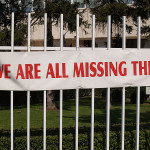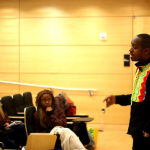by Malaika Aryee-Boi
Next week, the Yale African Students association, affectionately known as YASA, will be hosting Africa Week. Africa Week started out 10 years ago with the goal of recognizing the value of African culture and expanding its presence on Yale’s campus. For African students at Yale, Africa Week continues to be a time when students get to tell the rest of Yale about their home. The theme for this year, Made in Africa, reflects this spirit. YASA will host a myriad of events to celebrate and talk about film, music, fashion, education among others from all over the continent with the same goal, emphasizing on the vibrant potential of Africa.
You may ask, Why Africa? Why is it important to talk about Africa? Why is it important to me, a Ghanaian student at Yale, and why should it be important to you?
In thinking about Africa Week’s importance to me, I must first recognize something: my personal experience here at Yale is not solely my “African” or international experience. It is not my experience as a woman. It is not my experience as “black”, “mixed”, or whatever people feel like calling me today. These labels tend to generalize and homogenize experiences, and I can’t speak for other people. I cannot (and will not) shrink myself, or anyone else, into a single identity. I am all of these at once. I am Ghanaian, African, international, woman, and black.
The image many people have of Africa is one that is robbed of multiplicity of being. It is one that stems exactly from these broad generalizations I want to avoid. Africa is seen as one (rather large) country, with one people, one language and one story.
“Oh, so everyone in Ghana speaks English?” a dumbfounded freshman asked me at the first party I ever went to at Yale.
“Yes, English is the official language in Ghana,” I had to repeat, much to their surprise. Welcome.
I am not claiming to know the official language of every country in the world. But there seems to be an unfair proportion of ignorance reserved for this part of the world. People are still asked about pet lions, speaking African or the random Kenyan that their boss’s cousin’s friend met on their trip to Kenya. I don’t see a correlation.
But I do see how it is possible, considering that Africa is still being portrayed as backward, poor, diseased and dependent on the west.
Take when my professor had a slide projecting what seemed to be an African family- almost naked, lounging by the river, learning how to use bows and arrows. This image was up in the background together with that of a white father teaching his daughter how to play softball, as my professor talked about different ways of learning. There was nothing said about either picture, they were just background, but that said a lot to me.
I was probably the only person in that lecture terribly affected. I could not believe that Africa was still being portrayed that way. Yale students were unconsciously soaking up yet another misinformed image of Africa. It is no wonder that they are often so surprised to see us here. “Oh you’re from [Insert African Country]? That’s awesome!” Is it “awesome” or were you just not expecting me here? Or is it rather just unfamiliar and mysterious?
I think the only way to make the unknown known is to engage with it. I’m not here to tell you about all the things that Africa is. I won’t even pretend that I know all the things that Africa is. Luckily for us, Africa week is around the corner and we can learn about this beautiful continent I call home together. One week is not enough, but it is a start.



